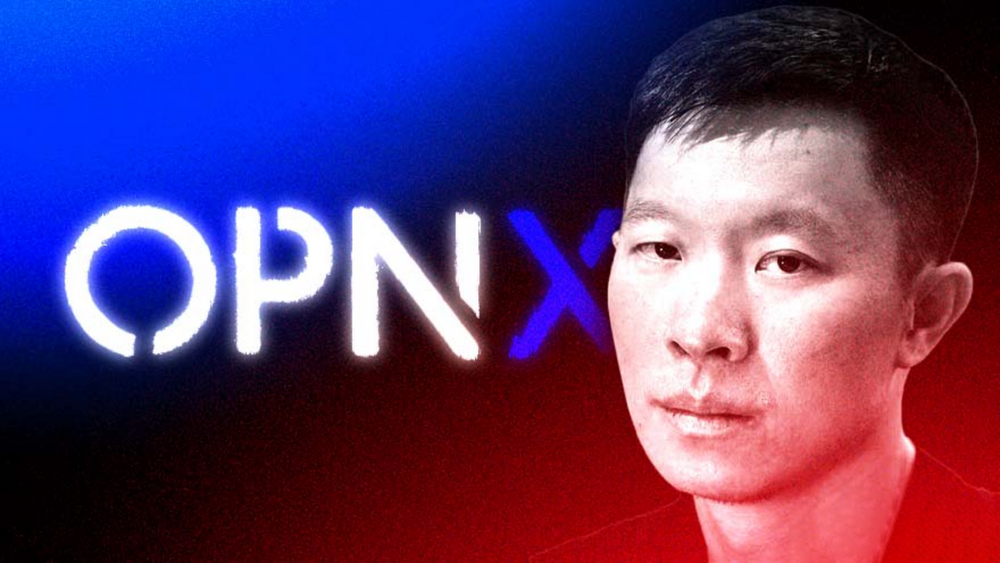What about companies that have left the blockchain industry?
In the period of blockchain boom in late 2017, many companies have entered the blockchain field, and cryptocurrencies are also very popular. No matter how small the company is, everyone wants to divide a piece of cake. Some companies will have no real reason. Blockchains are added to their names. (such as Long Island Iced Tea, tried to change to Long Bolckchain Corp)
But now, the opposite is happening.
This week, an Israeli blockchain company called Colu stopped upgrading and became the latest company to completely remove the blockchain and digital currency, on the grounds of regulatory and technical challenges. Often, such announcements are accompanied by ugly details—the abandoned blockchain project involves layoffs and millions of dollars lost.
However, Colu claims to plan to continue its work without any major disruption to its business plan – Colu will refocus on "developing a municipal partnership" based on the decision to exit the blockchain.
- Cryptographic currency enters BBC English course, 6 minutes defines digital assets
- Will all cryptocurrency be fined? Australian Taxation Office: Retirement funds cannot invest in a single asset
- Bitcoin world with huge gap between rich and poor
Colu also continues to distribute two community-centric currencies in Belfast and Tel Aviv, and is working with NGOS to grow the community. However, according to the report, neither of the current two programs is a blockchain project. The Colu organization also claims to be talking to other cities around the world to open other similar projects.
Colu ’s decision to purchase a CLN token never happened
The decision also announced that Colu's subsidiary in Gibraltar will be the first company to purchase tokens during the ICO, just as the blockchain project concluded.
The company claims that the company is looking for tokens to be sold during the ICO period or in the secondary market, amounting to 54 million. The announcement explains that a website has been added to initiate the repurchase.
The common practice of repurchasing is to seek to increase their scarce encryption token Dan Aiely. The behavioral economics professor at Duke University explained that Colu's completion of the repurchase is a unique insider's fundraising: Colu's decision to purchase CLN tokens is unprecedented.
Ariely pointed out that Colu's decision was driven by his ultimate mission. "The Colu team is concerned with promoting the relationship between municipalities, local businesses, local residents and other city stakeholders. These relationships depend on the same type of trust and interest and are being proven to the CLN generation. The holder of the currency," he explained.
“If we want it to continue to grow and evolve, then the abandonment of profits for the benefit of customers, partners and investors is critical to this technology industry.”
It is unclear whether these tokens will be repurchased at current prices or ICO prices.
Gary Bernstein, CEO of Cotrader.com, pointed out that there are considerable price differences in selling tokens in ICO (1:8600ETH, valued at 0.025 cents on August 15, 2019) and the price of the time currency (0.010051 USD, according to Coin market cap)
Colu said that they would buy back CLNS from the public at the original price, which is what a company should do.
It is hoped that Colu's actions will set a standard for companies that may repurchase tokens in the future. If you buy back at the current price instead of their original price, investors will face huge losses. However, Bernstein holds a small amount of CLN (buy at bancor.cotrader.com before they stop listing), pointing out that there is no limit to who can buy or sell back the price of ICO, and they say there is no limit for anyone.
This means that as the refund time approaches, arbitrage will bring the current price closer to the ICO price, depending on the investor's determination to make a refund and the time value and other things that hold the CLN. In other words, "If the refund clearly occurs, the price will rise faster."
However, if the refund is not implemented, Colu's announcement about the repurchase may only be to manipulate the price, as this statement may mean that the price will be adjusted to 1/8600 ETH (its ICO price) claiming that there will be a certain price at that price. Buyer.
Can Colu 's repo become a publicity stunt?
Another person familiar with the matter pointed out that 10 wallets hold 95% of circulating CLN tokens, two of which hold 83%, and the one with 54% of the largest wallets is active within 24 days.
The concentration of tokens may indicate that repurchases are just a kind of hype, essentially the company (knowing that the blockchain is not on schedule) can buy its tokens and buy back.
However, the news also pointed out that the amount in the wallet has not changed for a while, so the smaller may be to avoid paying others to pay for the purchase of tokens.
However, these concentrated funds do mean that most ICO funds will be concentrated in the hands of large investors and holders. Not much can be snapped up and refunded. Unless Colu determines to repurchase those tokens at the original price, investors who have received a refund will face huge losses.
Digipulse made a similar decision a year ago
Colu's decision to exit the blockchain area has much in common with Latvia's startup Digipulse's decision a year ago.
In the first week of August 2018, Digipulse CEO Normund Kvilis explained in a blog post that the company would mark itself and that DGPT tokens could be used for the company's shares. DGPT officially delisted from the exchange of cryptocurrencies on December 15, 2018
Although Digipulse abandoned the blockchain and there are some differences between Colu, but both are services that maintain the original settings. In fact, according to reports, Digipulse made this decision because the company tried to maintain value with service. Instead of symbolic price speculation.
However, unlike Colu, when Digipulse decided to leave the blockchain field, its media account disappeared and its pre-domain Digipulse.io was also on sale.
The persistence of the blockchain being abandoned
Colu and Digipulse may represent a smaller phenomenon, even as more and more companies give up the blockchain, but as you estimate, the decision to exit the blockchain is not driven by a set of values; instead, Abandoning the blockchain is driven by financial and technical concerns.
In any case, the trend to abandon the blockchain is clear – the first doubts about blockchain scepticism occurred in the first quarter of 2018.
With the boom and bust of cryptocurrencies in the past few months, everyone clearly understands that blockchain technology and encrypted digital currency are not enough to solve all the problems in the industry.
By March 2018, several large companies had stopped their blockchain efforts, according to Reuters, which is a combination of speculation and reality, the Deposit Trust Company (DTCC) BNB and the SIX group. Citibank also abandoned its blockchain program in March of this year.
Reuters also explained that there are many different reasons behind these abandonment, and although the blockchain has great potential, it is still in its early stages.
In addition, blockchains are not always needed—in fact, some types of systems are better suited to blockchain technology.
Muarry Dozmaner, director of services at DTCC Clearing, told Reuters that the company suspended the blockchain project because potential users of the company believe that other systems can create cheaper and more efficient technologies.
In fact, Cryptogeek CEO Malcolm Cauche told the blockchain that it is a surprising technology, but not everything should be built on it, and it is believed that the integrity of the data in the public block will not change. But this is not about whether the data is correct. After all, the blockchain cannot be completely determined by itself.
The co-founder and CEO of KaiStinchcombe, author of media advocacy in 2018, pointed out that the blockchain is often pointed out to lack trust, and it is not a credibility tool for future integrity and cannot eliminate trust.
Analyst Dan Mclrum wrote in an article that "the public can believe that the integrity of blockchain data will not change, but this is not about whether the data is correct."
The integrity of blockchain data technology magnifies its other benefits; its invariance. Once there is data on the blockchain, he will always exist and remain the same. But what if the source is not credible?
Blockchain project: quantity vs quality
At the same time, don't forget that blockchain companies are continuing to face more and more regulatory challenges.
In many parts of the world – the most obvious is that American blockchain companies still find it difficult to find a bank that is willing to accept them. National regulatory mechanisms are discussing blockchains and cryptocurrencies, which exacerbate future uncertainties.
However, regardless of technical or regulatory reasons, the trend of exiting the blockchain market will continue. Market analyst Forrester Research has released a report saying that 10% of blockchain companies will give up in the US.
Although the numbers are not that high, they will collapse at any time. However, blockchain believers can put hope in this fact, although the number of blockchain companies will decrease, but the quality will increase.
In 2017, Forrester published an article "The blockchain revolution of 2018 must wait for a while," the article explains: those who fail to make headlines news a reality will give up their investment, in the long run, those A deeper understanding of technology and potential will also move steadily, and many people are indeed moving forward.
The original text is from financemagnates , compiled by the Bluemountain Labs team, with abridged.
We will continue to update Blocking; if you have any questions or suggestions, please contact us!
Was this article helpful?
93 out of 132 found this helpful
Related articles
- Heavy! Foreign media: "Real" Nakamoto will self-certify and announce the "Bitcoin Transformation Rebirth Plan"
- Cai Weide: Analysis of the Four Key Elements of New Currency Competition
- Suppose this time is true, what can you bring to the market?
- Ethereum Istanbul hard fork will be carried out twice, and 6 code changes have been confirmed
- These five will soon be airborne TOP50 valuation "big chunks", is the scorpion is a horse? Pull out
- On August 17th, the market analysis of Bitcoin continued to fluctuate, and the fixed-point investment strategy remained unchanged.
- The real role of Bakkt: or the traditional fund control tool for bitcoin share






